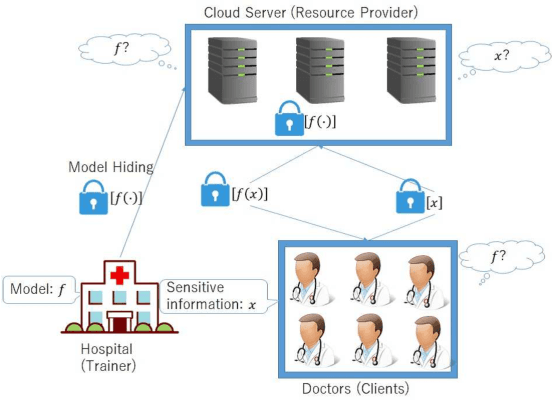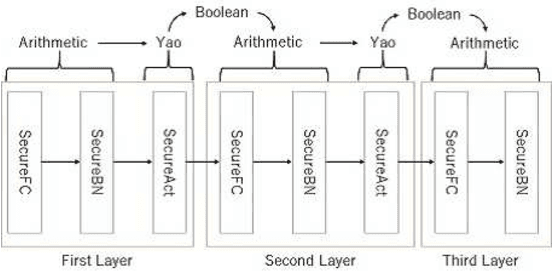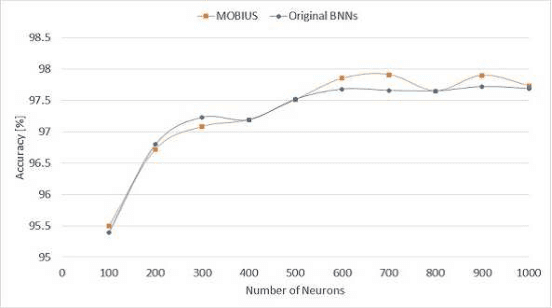Takahiro Matsuda
Adam in Private: Secure and Fast Training of Deep Neural Networks with Adaptive Moment Estimation
Jun 04, 2021



Abstract:Privacy-preserving machine learning (PPML) aims at enabling machine learning (ML) algorithms to be used on sensitive data. We contribute to this line of research by proposing a framework that allows efficient and secure evaluation of full-fledged state-of-the-art ML algorithms via secure multi-party computation (MPC). This is in contrast to most prior works, which substitute ML algorithms with approximated "MPC-friendly" variants. A drawback of the latter approach is that fine-tuning of the combined ML and MPC algorithms is required, which might lead to less efficient algorithms or inferior quality ML. This is an issue for secure deep neural networks (DNN) training in particular, as this involves arithmetic algorithms thought to be "MPC-unfriendly", namely, integer division, exponentiation, inversion, and square root. In this work, we propose secure and efficient protocols for the above seemingly MPC-unfriendly computations. Our protocols are three-party protocols in the honest-majority setting, and we propose both passively secure and actively secure with abort variants. A notable feature of our protocols is that they simultaneously provide high accuracy and efficiency. This framework enables us to efficiently and securely compute modern ML algorithms such as Adam and the softmax function "as is", without resorting to approximations. As a result, we obtain secure DNN training that outperforms state-of-the-art three-party systems; our full training is up to 6.7 times faster than just the online phase of the recently proposed FALCON@PETS'21 on a standard benchmark network. We further perform measurements on real-world DNNs, AlexNet and VGG16. The performance of our framework is up to a factor of about 12-14 faster for AlexNet and 46-48 faster for VGG16 to achieve an accuracy of 70% and 75%, respectively, when compared to FALCON.
MOBIUS: Model-Oblivious Binarized Neural Networks
Nov 29, 2018



Abstract:A privacy-preserving framework in which a computational resource provider receives encrypted data from a client and returns prediction results without decrypting the data, i.e., oblivious neural network or encrypted prediction, has been studied in machine learning that provides prediction services. In this work, we present MOBIUS (Model-Oblivious BInary neUral networkS), a new system that combines Binarized Neural Networks (BNNs) and secure computation based on secret sharing as tools for scalable and fast privacy-preserving machine learning. BNNs improve computational performance by binarizing values in training to $-1$ and $+1$, while secure computation based on secret sharing provides fast and various computations under encrypted forms via modulo operations with a short bit length. However, combining these tools is not trivial because their operations have different algebraic structures and the use of BNNs downgrades prediction accuracy in general. MOBIUS uses improved procedures of BNNs and secure computation that have compatible algebraic structures without downgrading prediction accuracy. We created an implementation of MOBIUS in C++ using the ABY library (NDSS 2015). We then conducted experiments using the MNIST dataset, and the results show that MOBIUS can return a prediction within 0.76 seconds, which is six times faster than SecureML (IEEE S\&P 2017). MOBIUS allows a client to request for encrypted prediction and allows a trainer to obliviously publish an encrypted model to a cloud provided by a computational resource provider, i.e., without revealing the original model itself to the provider.
 Add to Chrome
Add to Chrome Add to Firefox
Add to Firefox Add to Edge
Add to Edge